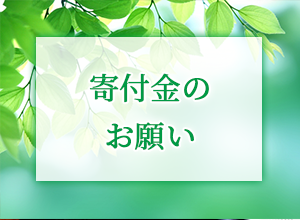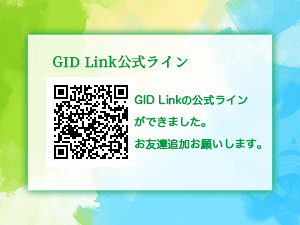GID Link Representative Nobu Shiita

Lecturer, Fukuoka Prefecture Human Rights Enlightenment Training Group
Born in 1970 FTM (trans male) party
Certified Disaster Prevention Specialist
Completed GID Society Expert Training
Certified Mindfulness Professional Instructor
Psychological counselor and depression advisor, family therapy counselor, etc.
After working as a tour operator, I managed a travel agency. Later, I closed his travel agency and began studying the spiritual world, which had always interested me. Feeling the need for mental healing, I studied mindfulness, coaching, psychological counseling and therapy, and obtained certification in the U.S. in healing used in medical institutions. Currently, I holds seminars, counseling, and therapy as my current position.
2013-2016 (Ippan Shadan) gid.jp – Association of People Living with Gender Identity Disorder – After serving as the first Kyushu Branch Director, I founded GID Link.
Since 2012, I has been teaching classes as a GT (guest teacher) at elementary schools, universities, and medical school nursing departments.
As a lecturer, I have taught human rights education and staff training for prefectural and municipal governments, students at public and prefectural elementary schools, universities, and vocational schools, teachers, PTA, mental health workers, civil service commissioners, hospitals, and businesses, as well as human rights education workshops for vice principals and vice principals at the Fukuoka Education Office, principals meetings, citizen lectures, prefectural citizen lectures, and many other activities to promote awareness.
As a psychotherapist, I provides support and consultation services for people with gender dysphoria, their families, and supporters.
Nobu Shiita Profile
Hello everyone.
When I was born, I thought I was crazy because the term “gender identity disorder” did not even exist.
As a child, I believed that one day I would grow a penis.
I hated my kindergarten skirt uniform and red school bag.
I thought I was strange and that “people mustn’t know about it,” so I managed to live with it.
When I entered junior high school, the uniform, menstruation caused by secondary sexual characteristics, and my growing breasts became even more painful.
Around this time, bullying and harassment began.
Fortunately or unfortunately, I attended a private all-girls missionary middle and high school.
At the time, I was a softball pitcher and had a grip strength of 68 kg. I was the strongest of all the students in the school, so there was no overt bullying.
However, I was often harassed by people hiding my bags and shoes, but I still thought it was better than the kids at co-ed schools.
When I became a high school student, I asked myself, “Do I have to hide myself for the rest of my life?” “If I have to live like this, what was the point of being born? Wouldn’t it be better to die?” I thought about many things every day.
I even attempted suicide. I even cut my wrist. But I am an only child and I thought how sad my parents would be if I died. I decided I would never do that.
My first job was as a tour conductor. It was a job I loved, but there was a rule that women had to wear skirt suits and makeup. The stress of pretending to be something I was not grew.
Around that time, I watched the TV personality Ryutaro Kamioka’s program “50 People Asked,” and learned that there were many people like me in the world.
On the other hand, I began to feel the limits of living my life hiding who I am.
I quit my job as a tour guide and began to work at various workplaces, including a pub cook, a dry cleaner, a gas station, a moving company, a lunch box shop, and a sales clerk.
Fortunately, all of these workplaces recognized my ability to do my job and worked with me as a part-time leader.
Some of them even encouraged me to continue working as an employee.
However, when they found out that I was an FTM, they dismissed me, saying that they did not want such a special person.
Even in my job search, I was dropped because “I look like a man, but I went to an all-girls school.
That was the reason I could not find a job.
When I was about to give up, a girlfriend I was dating at the time asked me, “Why are you sneaking around? Nobu is Nobu, right? Gender has nothing to do with it.
At that moment, I thought, “Oh, there are people in the world who think like this. I didn’t do anything wrong, so I’m not going to hide it anymore!” So I decided to come out.
In my time, the term “gender identity disorder” didn’t exist, and there was no one I could talk to about it.
Now there is a law that allows people to change their gender if they meet certain conditions. I am now a male on the family register.
And more and more people are trying to “know.”
However, even in such an era, the “children’s problem” has not changed at all from decades ago when I was suffering from it.
It must not remain the same.
We adults must convey the message.
With this in mind, I began my activities.
In 2011, I joined the Chugoku and Kyushu branches of gid.jp Japan Gender Identity Disorder Association. 2012, the Chugoku and Kyushu branches became independent, and in 2013, I became the first Kyushu branch president.
Since 2012, I have been teaching as a GT (guest teacher) at elementary schools, junior high schools, high schools, universities, and medical school nursing departments, etc. During my activities as chapter president until March 2016, I have realized the importance of “knowing.”
However, most people rarely have the opportunity to hear the basics.
The lack of “knowing” leads to discrimination, prejudice, and bullying.
Then, isn’t it important to share 多様な性を生きる人々+ knowledge with as many people as possible?
If so, I wanted to create a place where people can hear basic stories anytime, so in 2016, I launched GID Link, a support group that deepens the “bond” between the parties concerned and their families, friends, schools, workplaces, society, and communities.
Specifically, GID Link focuses on educational activities such as consultation support, human rights training, human rights learning, lectures, and exchange events for people with gender identity disorder, people suffering from gender identity disorder, their families, and supporters.
We hope that you will pass on the information to others, “I heard that if you go to GID Link, you can hear basic stories.”
The exchange meetings are full of candid talks that are hard to hear in public and are very popular.
Please come and visit us. We are looking forward to seeing you.






